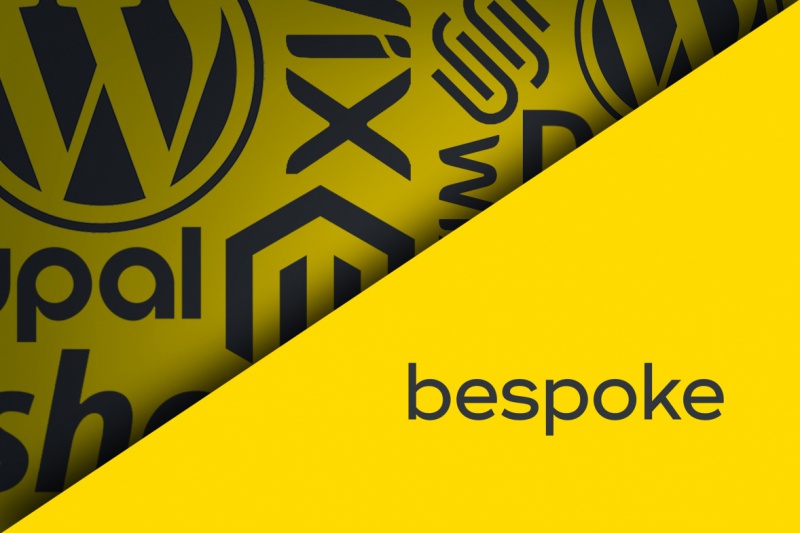When it comes to commissioning a website project, there’s often two approaches to consider:
Both have their merits, and both have their drawbacks. For example, the first option can be cheaper in the short term, but the second option will most likely add more value to your business in the long term.
It’s a tough decision, and one we regularly help our clients to make by getting down to the nitty gritty of what they want, vs what they need. We’re honest and open about the options available and if we feel an off the shelf solution will fit the client’s needs, we’re happy to signpost them to those products.
However we wouldn’t work on that project. We don’t do off the shelf.
We’ve lost count of the enquiries we’ve received when the prospective client wanted a Wordpress website maintaining or refreshing. In some of these cases, we’ve helped them understand their options and built them a new bespoke site; or in other cases, we’ve recommended that another supplier might be a better fit for their needs.
That’s not because we don’t think WordPress is a good platform, we’ve just found a different way of working over the years that suits us as an agency, and our clients. Off the shelf platforms such as WordPress, Magento or Drupal work well for some businesses, and can do exactly what they need them to.
But here at Umber, we’re passionate about creative problem solving. Finding solutions to problems our clients didn’t even realise they had, and building tech that can ultimately transform their business. That’s where we can deliver the most impact.
And to do this, we don’t make square pegs fit in round holes.
We’ll run through the pros and cons of each option shortly, but the first question we always ask prospective clients is: “Why?” And if you’re about to commission a web project, we recommend you do the same, too.
We’re often met with a puzzled look when we ask these questions, but by doing so, we can fully understand a problem and present our own solution, which more often than not, doesn’t match what the client initially asked for!
That’s not to say our clients don’t know what they want, or that we don’t deliver what our clients ask for, we just think stepping ‘outside the box’, is a great way to truly understand the project .
Quite frequently we’re able to come up with suggestions that provides additional opportunity or benefit, or reduces the amount of work required.

If your project’s requirements and the features of your chosen platform match perfectly, great. You’ll achieve good results! If not, there will be some work required to bridge the gap in functionality. This may mean your chosen provider has to write some code, find plug-ins or similar libraries of code to adapt the core framework to do what they need.
Pros:
Cons:

When we work on a bespoke project, our code is written using our own framework and not based on an off the shelf platform. This means that we’re not trying to find a way to bend existing tools to match the project, but are creating something tailored to the needs of the client.
Pros:
The website is built specifically to your requirements. You don’t need to bridge a gap between existing functionality and desired functionality, allowing for more creativity.
Future proof. If you need additional features and functionality, the website can be enhanced as and when required. The chances are good that we’ve already discussed these potential expansions and future feature options already during the specification stages of the project.
Lower maintenance costs. Typically, any costs you will receive are to add new features and functionality rather than paying to keep your current platform functioning as the framework of your site is more stable.
Cons:
Initial development time and costs can potentially be higher, depending on the project. It’s worth remembering here that the start of the project is the ‘discovery phase’, a lot of time must be spent ensuring the website is planned in detail with wireframing etc. This is what you’re paying for - attention to detail and creative thinking!
Finding another provider to look after the website may be harder. We mitigate this by being willing to provide copies of the code once the bill is paid, should a client wish to move, but not all providers will do the same.
To summarise, it’s not as simple as saying one option is better than the other. Like we said, both have their merits and both have their drawbacks.
When commissioning a website or tech project, make sure you fully understand what you’re asking for and the implications of the decisions you’re making. This will ensure the end result can help your business succeed in both the long and short term, and avoid you making any costly mistakes.
Still not sure? Give us a call and we’ll help you work out what you need.